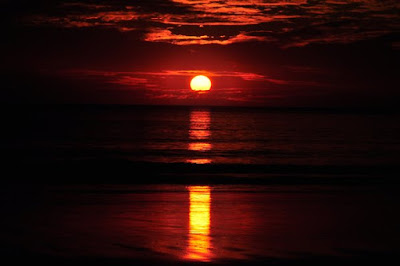Sky Sunday - Season of Creation
I could never claim to be an astrophysicist,
or even claim to understand much about these things. But I have subscribed to the kind of
magazines that tell stories about these things for many years and there is
something that amazes me about the sky.
With our telescopes, we have gathered visible
and invisible light and radio-wave information to create images of stars,
galaxies and constellations that are further away from us here on earth than we
can imagine. Indeed the light which we
have used to create the images has been travelling towards us for millions of
years so what we say we are seeing now is really what was there those millions
of years ago – maybe it has all changed.
I suppose you are like most people, feeling
more comfortable thinking about rather more solid things much closer to home –
like the chair you are sitting on, or the building that we are worshipping in.
In the mid to late 16th century, as
scientists were experimenting with glass lenses, Zacharias Jensen invented the
first microscope and since then we have been one a quest to look at smaller and
smaller things. The electron microscope
took us close enough to see the particles of atoms, and now we can even see
sub-atomic particles.
What we have discovered about the world of
atoms that make up solid matter in our world is that actually they are far from
solid. In fact, I hear recently that if
an atom was seen on the scale of our solar system, the electrons flying around
the nucleus of neutrons and protons would be as far away from the nucleus as
Saturn or Jupiter are from our sun. That
seems to me to be an awful lot of space within the atoms that make up solid
things. Yet they still hold us up when
we stand on them or sit on them.
When I think of our world in these two
directions, I think I get in touch with the kind of awe that the Bible speaks
of when it refers to our response to the Glory of the Lord.
The Psalm we read today is most eloquent about
this:
1 The heavens
declare the glory of God:
and the firmament proclaims
his
handiwork;
The Psalmist did not understand the heavens In
the way we do today. As best we can
tell, the cosmology of the Psalmists day was based on an image of the earth as
a flat disc covered over by a hemispherical dome – the heavens. The earth we stood on and the space between
earth and the dome had a specific function – to keep the water back.
If you dig deep enough into the earth,
everyone knew that you would find water, so the earth is clearly keeping that
water at bay. And the rain and hail and
snow that falls is obvious let in by God, through the shutters in the heavens,
to water the earth so that plants could grow and we had water to drink.
That was cause enough for the Psalmist to say
these heavens declared the glory of God.
Given what we know today, how much more cause have we to marvel at the
glory of the Lord.
But there is something else in this Psalm that
has tantalized thinking believers for thousands of years.
3 There is no speech
or language:
nor are their voices heard;
4 Yet their sound
has gone out
through all the
world:
and their words to the ends of the
earth.
Because the whole basis of our social
existence relies on words spoken or read, the claim in this Psalm challenges
us. Yet in some ways we understand it
when we say that “actions speak louder than words.”
But it does kind of boggle my mind thinking
about how these inanimate objects we have become familiar with in our universe
“speak” or “declare” something to anyone.
Let me explore this a little to see if you can get in touch with it.
How would you respond if you were sitting on a
beach like Cable Beach in Broome, watching the sky over the ocean gradually
turn various shades of golden / orange and fading into deep amber before giving
way to a bluey-green twilight that preceded the darkness of the night and the
gradual brightening of the starry pinpoints of light. Or watching a full moon rise over Roebuck Bay creating the reflections they call a "Stairway to Heaven".
A typical human response to that would be awe. The same typical human response as when we
consider God our Creator.
The ability of the created order to arouse
this sense of awe in us is what I think the Psalmist is getting at with these
words – that the Heavens do communicate to us without words or voices that this
is all an expression of the glory of God.
And so we join with the Heavens in praising God, in declaring his glory,
in responding in awe.
Thanks be to God. Amen



